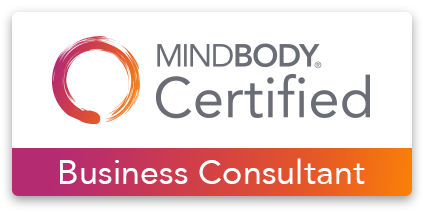Preparing to file your 2020 taxes
Getting your tax documents organized in a normal year can be quite a chore. And since nearly everything about 2020 was different, it’s probably no surprise that tax prep may be as well. In addition to the usual documents you’re used to bringing to your tax appointment, there may be more you’ll need this time around.
To help you get ready for your 2020 tax return appointment, we put together a list of basic things to bring*, what’s new, and questions to expect. This isn’t an exhaustive list of every possible piece of paper you need. Instead, we’re sharing basic tips and highlighting new things this year. If you want a longer list of documents and questions (but still not exhaustive) – here’s a link to download our client checklist and questionnaire.
*New for 2020 tax returns: the first new thing is probably your virtual tax appointment. Some meetings might be held in person, but the vast majority will be on the phone or via Zoom. So when we say “bring” – we really mean upload or mail (please don’t email your tax documents to anyone).
Tax Forms You Received
The basics: You know you’ll need to bring the tax documents you received with official form numbers such as W2, 1099, 1098, or K1. Typically, your tax preparer doesn’t need the original copy of these forms – an electronic copy is fine. But if it has a form number or says “tax document,” it probably has important information for your tax return and should be shared with your tax preparer.
You might think it’s helpful to share form numbers with your tax preparer to see if it’s a required document, but it’s usually easiest to just share a copy of the forms themselves. Let your tax preparer do the rest.
New for 2020 tax returns: There was a change to the Form 1099 reporting for independent contractors. So you might have received a 1099-NEC instead of a 1099-MISC. If so, you need to provide this to your tax preparer.
Many taxpayers received Form 1099G for 2020, which reports unemployment insurance benefits (as well as some other types of income). If you received any unemployment income in 2020, be sure to get a copy of this form before getting your taxes done.
Other Documents to Provide
The basics: Some of your tax information won’t be provided to you on official IRS tax forms. You’ll likely have to gather the information yourself for things like charitable contributions, property tax payments, and child-care expenses. Most tax preparers won’t require you to supply them with receipts for these types of tax deductions (depending on the dollar amount). In fact, your tax preparer will thank you if you just provide them with a total of these amounts rather than a pile of receipts. Keep those receipts and proof of payment for your records though – and hope you never have to use them.
New for 2020 tax returns: The IRS is allowing taxpayers who don’t itemize to take a special deduction for charitable contributions. The deduction isn’t huge – but if you haven’t typically shared your charitable contribution information with your tax preparer, be sure to do it this year.
Another bit of information you will need this year is the amount of your Economic Impact Payment (otherwise known as the COVID stimulus payment). There were 2 different rounds of payments (in 2020) so be sure to provide how much you received for each round.
Business-Owners and Property-Owners
The basics: If you have a business or own rental properties, you need to provide your tax preparer the total income and expenses. You might receive 1099s that report some income, but you need to keep your own records as well. Don’t rely on your customers or tenants to report the information correctly. And, if you receive income and don’t get a 1099, you still have to report it.
Your report of income and expenses should be pretty simple. If you are using bookkeeping software, just print out the income statement (or profit and loss). If you aren’t using software, just add up your total income and then categorize the major expenses. Even if you aren’t sure if an expense is “tax-deductible” add it to your list of expenses and make a note to ask your tax preparer about it.
New for 2020 tax returns: One new thing this year to talk to your tax preparer about is the Paycheck Protection Program. If you received any PPP loans, be prepared to discuss that information. The same goes for any Economic Injury Disaster Loans or any other disaster assistance you received. Not all of these are taxed in the same way, so don’t just lump these together as “income” on your report.
What about Bitcoin?
New(ish) for 2020 tax returns: Your tax preparer will ask you if you bought or sold any cryptocurrency in 2020. They may have asked you this for 2019, but they should definitely do it for 2020. The IRS has added that specific question to the tax return – and if you answer “yes”, be prepared to provide additional information.
Bottom Line
While you may have gotten more tax documents for 2020 than normal, you have the (hopefully) easy job of gathering the necessary paperwork and information to give to your tax preparer. It’s your tax preparer’s job to do the heavy lifting of understanding complicated and ever-changing tax laws and making sure your tax forms are completed properly. For a more detailed list of suggested documents and questions to prepare for filing taxes, here’s the checklist and questionnaire we use with clients.
If you’re looking for additional tax information, check out our articles on the home office deduction during the pandemic, pandemic-related tax deductions (or not), and tax planning explained.









